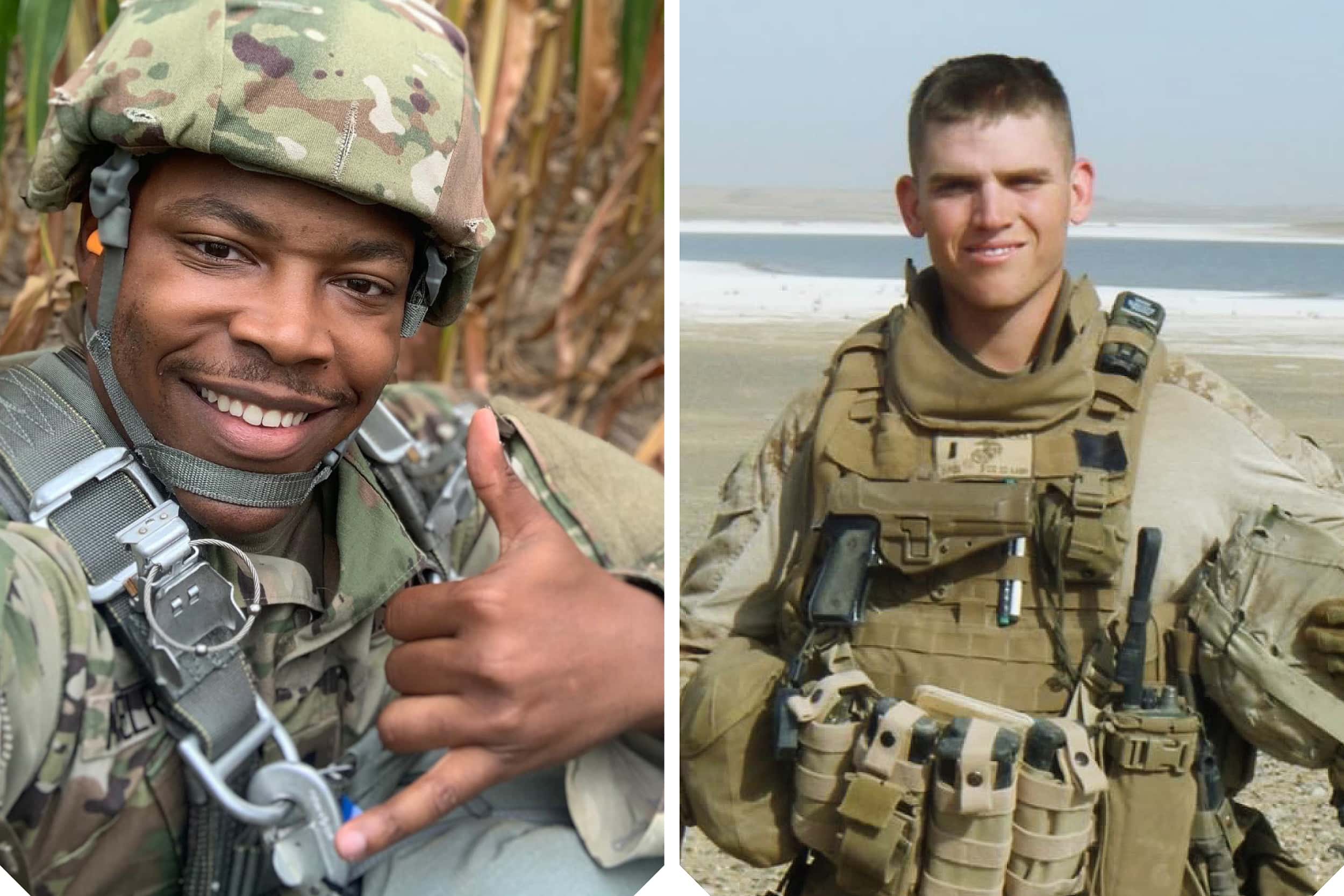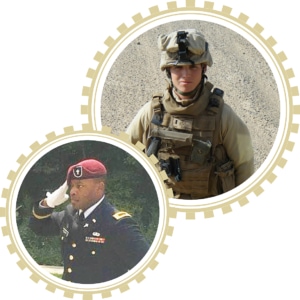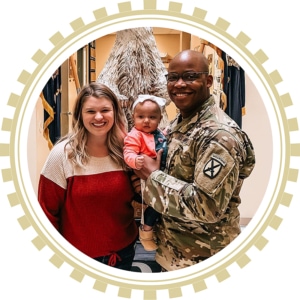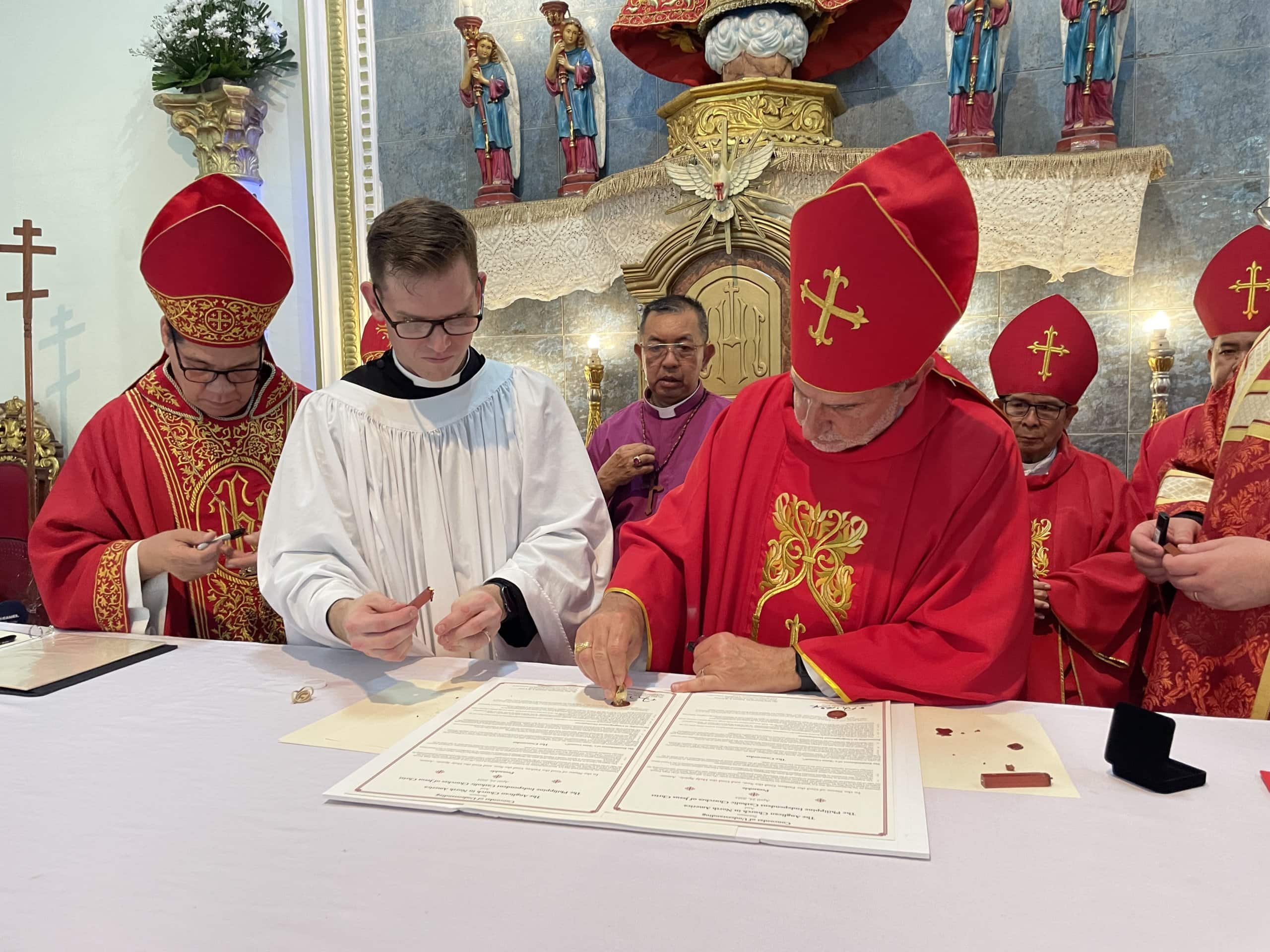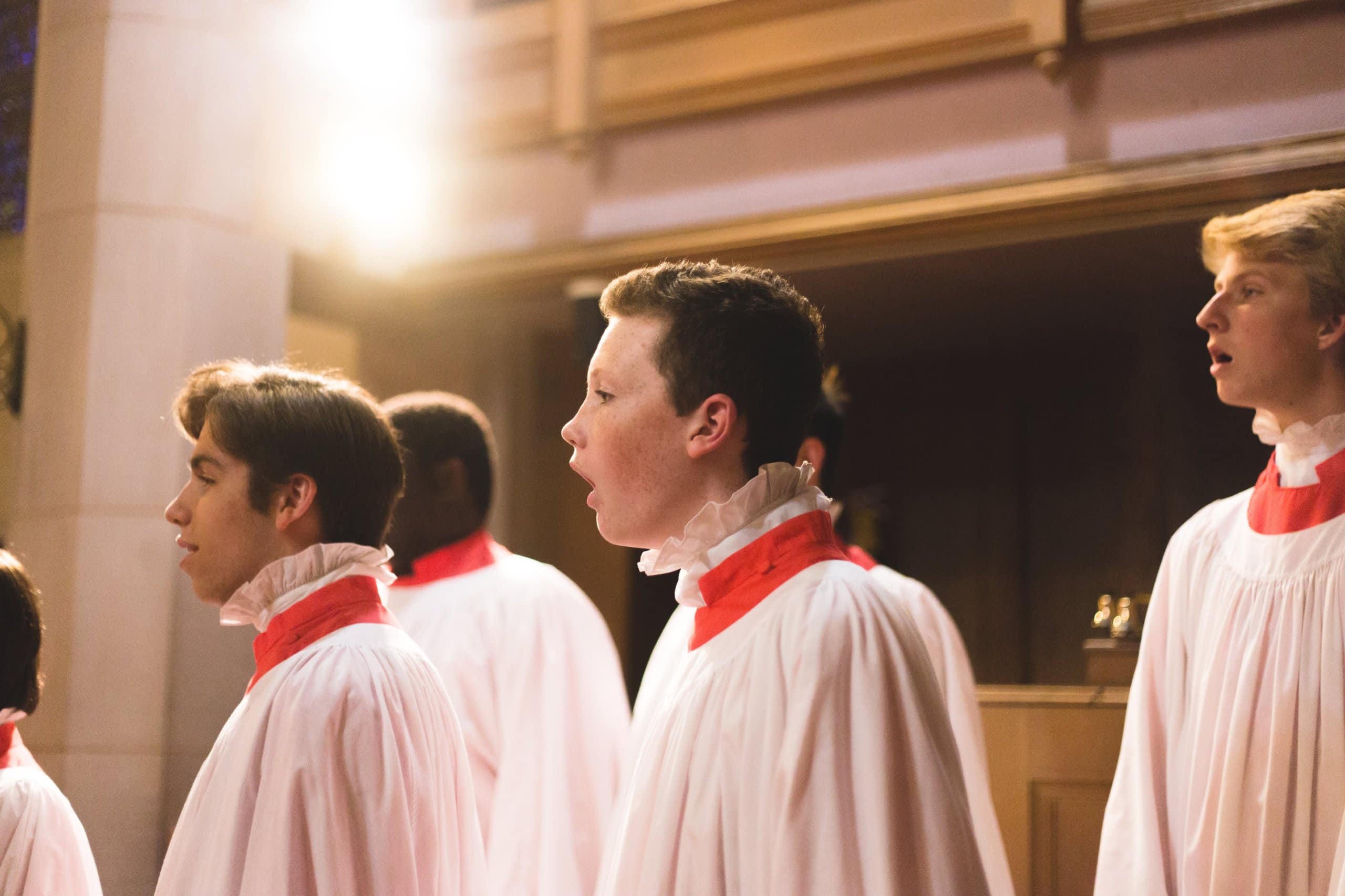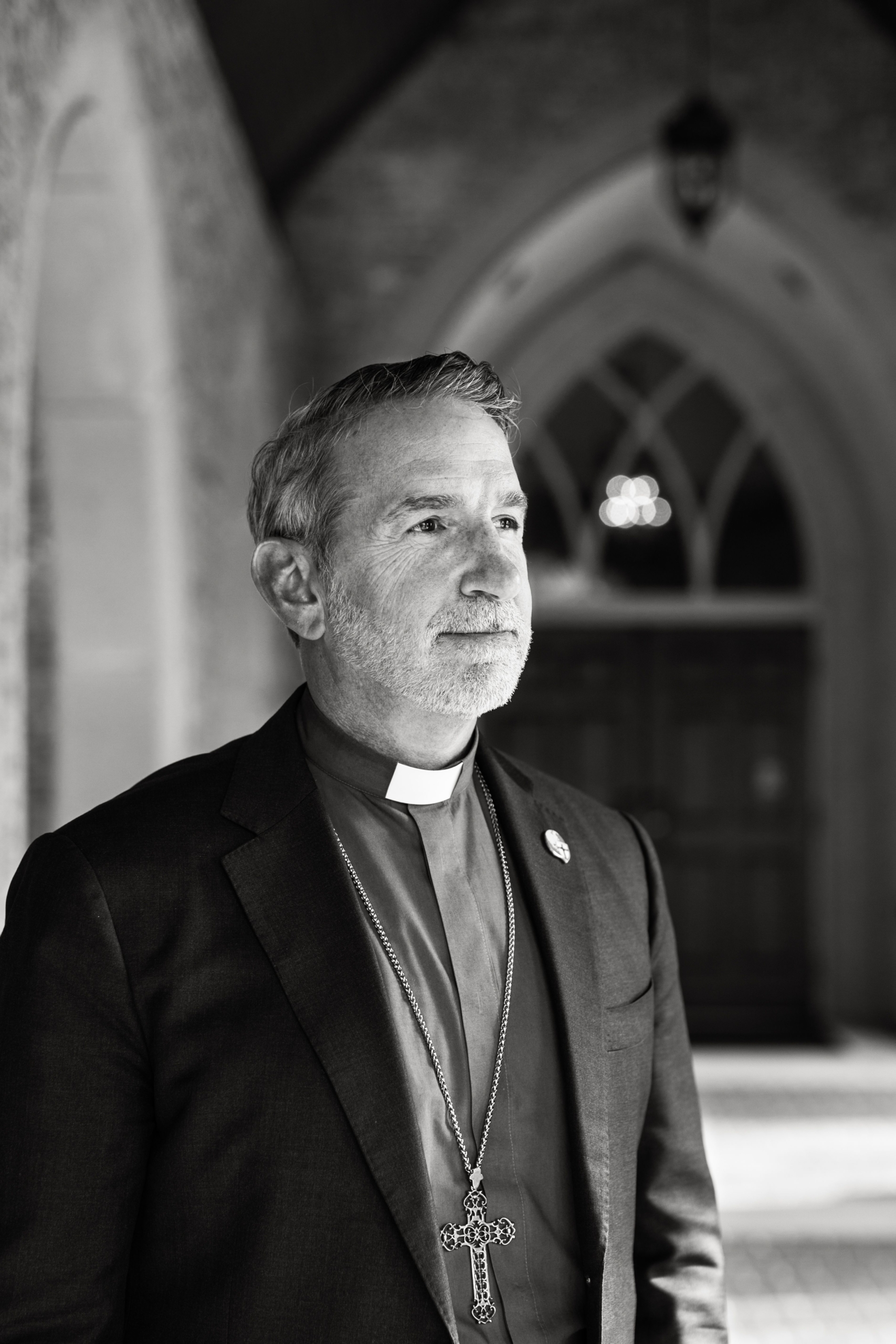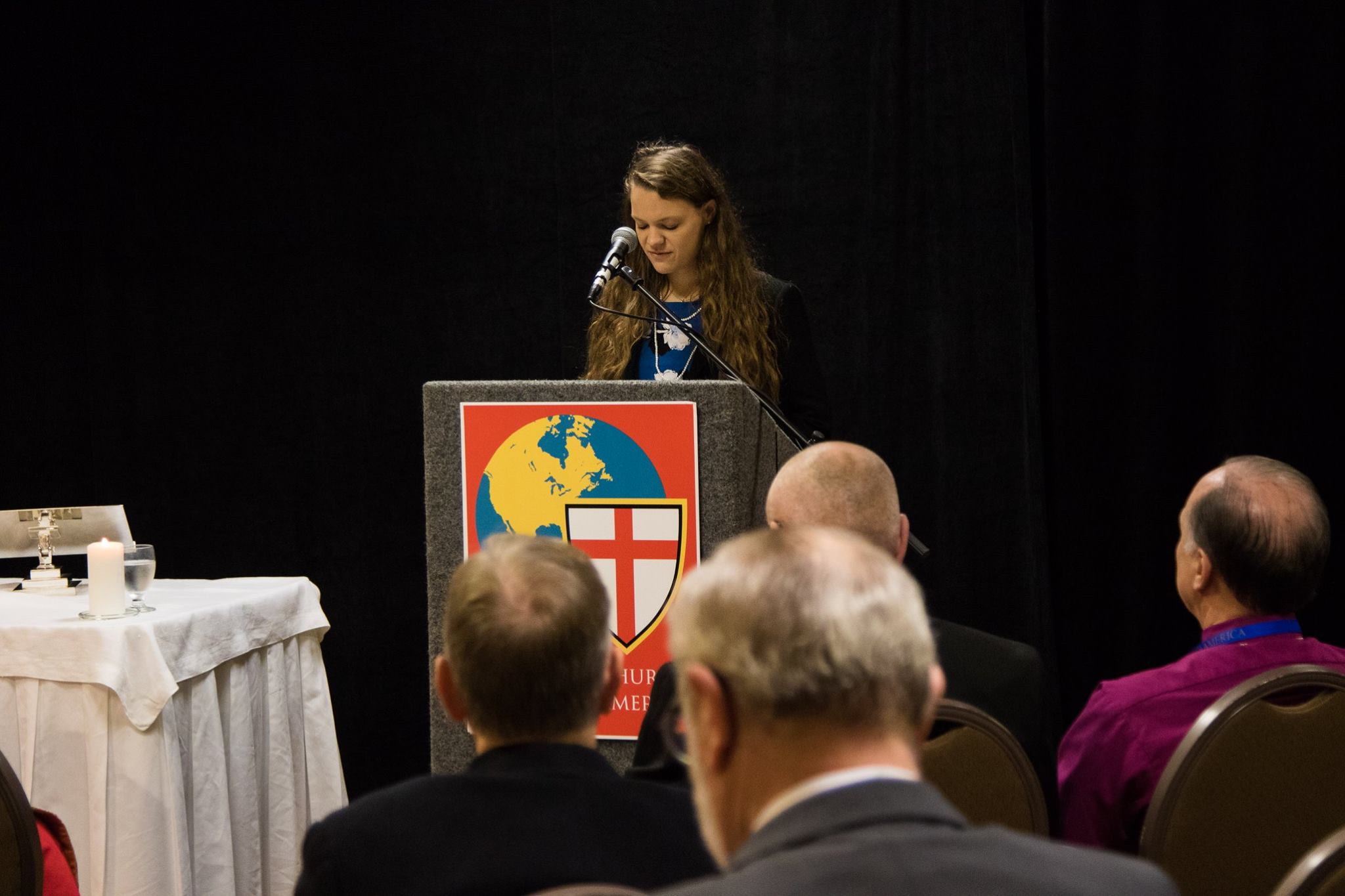“They won’t remember my name, they’ll just know whether I was a good chaplain or not,” the Rev. Canon Lawrence McElrath said thoughtfully as he reflected on his upcoming mission. “And they don’t really know what good looks like except for ‘was he there,’ ‘could I find him,’ ‘could he help me?’”
McElrath has spent the last two years as Canon and Chaplain to Archbishop Foley Beach while in the Army Reserves. Now called up for Active Duty as a military chaplain, he will deploy to Afghanistan.
After enlisting in 2013 as a military police officer, McElrath became a chaplain in 2017. “I always wanted to be a chaplain,” he said. “I enlisted with the intent of becoming a chaplain, but I wanted to know what being a soldier was all about, experience people yelling at me and doing all that.”
As McElrath heads overseas, the Rev. Canon Wes Jagoe will interim as Canon and Chaplain to the Archbishop, essentially trading places with McElrath. Jagoe himself served as a Marine Corps Platoon Commander at the very base McElrath is headed to in Afghanistan.
“It was combat, and we were part of the biggest operation of the war there,” Jagoe said of Afghanistan in 2009-2010. “Literally, every step you take, you think you might get blown up.”
Realistically, a key role for military chaplains is to preside over funerals of fallen soldiers. In the Reserves, McElrath presided over 28 servicemember funerals in 3 years. Speaking on this, McElrath described, “That is the hardest, but the most favorite part of being a priest for me. You get to preach the gospel to people who are hungry, who are waiting to figure out what’s next.” Noting the urgent reality of mortality people are faced with at funerals, McElrath likened the experience to that of his broader role as a military chaplain: “It’s all life and death. We’re not going over to play games in Afghanistan, I gotta preach!”
He will be amongst those who are often nominal believers at best, hostile to the faith at worst. “You’re a missionary…it’s a large mission field,” McElrath described.
Jagoe clarified, though, that more soldiers are open about and interested in the faith in places like Afghanistan and during war time than during peace time. Having subsequently served on a peace time ship deployment, Jagoe has first-hand knowledge of the contrast. He described that while soldiers living ten feet from the chapel on ship would not step foot in the space, in Afghanistan, he would have soldiers attending Bible studies and once had a soldier randomly contact him asking about his faith.
“I remember we had these computers in our trucks,” he narrated, “and they’re just heavy-duty computers but you can send texts to the other trucks. We were out in the middle of nowhere, middle of the night, and a Marine from another truck texted me and said, ‘Hey, Sir, you go to church, right?’ and he was basically asking me about Christianity. It didn’t go much beyond that, but the fact that he was thinking about it and wanted to ask me, you wouldn’t get that same thing during peace time.”
Unlike Jagoe, though, because chaplains are non-combatant officers, McElrath believes he must first show his soldiers he is one of them before expecting their openness to such conversations: “Running with them, being where they are, then I earn the right to talk about Jesus. You’ve got to earn the right to talk about Jesus. And it’s coming in through the side-door, relationships and stuff like that. On the 25-mile ruck, you better do it too, and you better not come in last. If it’s an airborne unit; they’re jumping out of planes, you better jump out of planes too.”
It’s about earning trust and respect. It’s about providing for the needs of his soldiers and offering practical advice as the “religious expert.” It’s about building relationships as soldiers open up about the tough realities of life and combat. Like he said, he’ll be a missionary.
For McElrath, though, this is a joy. Those who know him, know that building relationships is what he loves to do even at home. But this new context is particularly special to him: “I enlisted in the military to become a military police officer in 2013, and then, I felt the Lord was telling me I was going to preach in desert pews, and so now, in 2021, I get a chance to do that.”
The fulfillment of this dream does come with sacrifice, however. “There’s this duality, right,” he acknowledged, “I’m living the call and get a chance to do those things, but at the same time, I’m sad because I’m going to leave my wife and baby and family and I’m not working for the archbishop right now.” McElrath’s daughter is less than a year old. His wife, a schoolteacher, had to leave her job as they moved from Georgia to Fort Drum in New York just after the school year began.
Still, McElrath says, “I’m really excited to actually deploy.” Something he admits many will think is “crazy,” partly because he’ll miss his family and partly because the conditions he is heading for will not be glamorous – to say the least.
Jagoe can relate to the duality McElrath faces. “Half the people I was with on that ship had been to Afghanistan or Iraq…Everybody wanted to go back to Afghanistan because at least you’re doing something that you felt was important. You’re actually doing your job. It’s adventure.” Acknowledging that it was scary to be in combat where any step could be your last, for them the adrenaline and purpose was greater.
Notably, one of Jagoe’s fondest deployment memories was with an Anglican chaplain who offered him communion. “I hadn’t had communion the whole time I was there,” Jagoe explained. “We went to this bone yard of vehicles that had been blown up. It was at night. We set up a table with some box or something. We set up an altar, and we had communion there just the two of us. That was a cool memory.”
McElrath expects to have his own special moments over the Eucharist, whether it be on the hood of a truck outside the wire or in a mini-Gafcon chapel service with contractors from around the world who are members of the Anglican family.
Back in North America, Jagoe will help continue the mission of the Church by supporting Archbishop Beach in his roles with the Anglican Church in North America and Gafcon until McElrath returns home. Jagoe will travel with the Archbishop and support visitations and relationships through various administrative and spiritual duties.
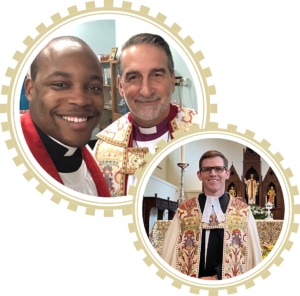
He’s looking forward to the opportunity the Lord has brought to him before diving in to pursue his long-term ministry vision. “One of my goals for the next year, as I’m discerning my next steps in ministry,” he said, “was to get out, see more places in the ACNA, get to know people; and then, here I’m offered a job that literally I’m going to be going around doing that.”
Assured that the Archbishop is in good hands while he’s gone, McElrath speaks highly of Jagoe saying, “I don’t know if there’s a more qualified [person]. He is well-formed… I do trust him; I really do. This is a great pick up. The Lord did that. He is absolutely the best man for the job.”
Though the two were previously only acquaintances, they struck up a friendship during a transitional visit in which Jagoe learned the ropes of the role from McElrath onsite in Georgia.
McElrath expressed that he’ll miss traveling with the Archbishop and witnessing the intimate experiences of bishops and archbishops praying together and over one another, when the Lord is moving through them. He passionately explained, “It’s about those international experiences; serving those Primates; having those memories; being in the room when the Spirit of the Lord is doing great things; knowing it’s not about you, but getting to witness it and having that unique perspective that nobody else in the Church gets to have.”
He continued by expressing his hopes for Jagoe: “So, that’s the thing that I hope that Wes takes advantage of; that he isn’t so busy serving he misses the moment. Can he serve the archbishop? Absolutely. But my prayer for him is that when he’s in those rooms and the Holy Spirit’s doing what He’s doing, the Holy Spirit knows he’s in the room too, and I pray he gets what the Spirit has for him, too.”
For the Province, McElrath hopes that “more people will see the military as a mission field and that people are called to it. I hope that more people would be called to [military chaplaincy].”
For himself, he says, “I’m praying that [my soldiers] would see the way I live my life and that it’s different, and that, while I’m not trying to force it on people, that I would still live a life that would not put the Gospel to shame. Not just that they would look and say, ‘oh he’s a good man,’ but that they would say, ‘oh, he’s a man of deep faith.’”
Jagoe’s prayer for his time with the archbishop is “to be helpful and a blessing to him. I know he’s got a lot of responsibilities. I want to make those responsibilities easier so he can focus on his role.”
Please join us in praying for the ministry of these young Canons, the safety of Canon Lawrence and his soldiers, and the families of all military servicemembers.
To learn more about Canon Lawrence and Canon Wes, click here and here, respectively.

ABOUT THE AUTHOR RACHEL THEBEAU
Rachel is the Deputy Communications Director for the Anglican Church in North America and, in that role, Managing Editor of The Apostle Magazine. She works remotely from New Braunfels, Texas where she is a member and leader at Christ Our King Anglican Church.

